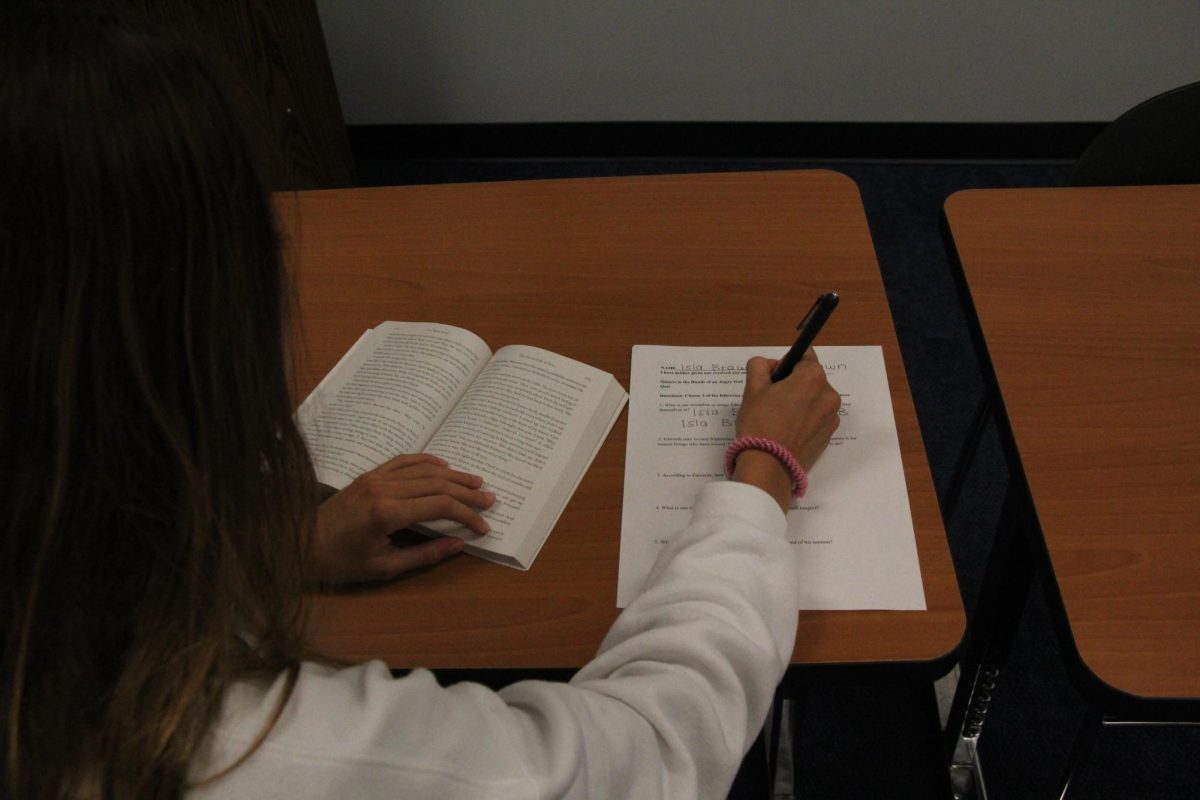Open book tests provide a great practice for analytical thinking, reading comprehension, and real-life skills for students. Problem-solving abilities can be implemented within open-book tests, allowing teachers to scale their students’ abilities. Students can evaluate a piece of writing and implement it into critical questions, fostering a greater understanding of the material.
However, open-book tests are a practice that should be abolished. These assessments do benefit students, with the decline of material comprehension. The use of open-book testing creates inadequate study habits and time management skills.
The purpose of a test ought to be to reveal a student’s comprehension of a certain subject and skill set. With the use of notes and study tools during a test, that display of understanding is virtually non-existent. Teachers cannot accurately assess a student’s abilities when they are dependent on their notes. Teachers utilize testing to identify knowledge gaps within their classes, allowing them to focus on particular material. When students do not use their knowledge to complete their assessments, teachers cannot recognize a student’s apprehension.
Tests are also used to measure growth within subjects. This creates inaccurate scores and leaves students with misguided interpretations of their courses. If teachers become reliant on open-book tests, the material will not be comprehended entirely and students will advance to their following courses, unprepared.
The principal outcome of tests is to allow students to apply their knowledge to outside ideas. The sole copying of information does not allow students to do so. According to Kpcrossacademy.org, “Not only does consistent testing help students retain information, but they’re also more likely to be able to transfer their knowledge and use it in different contexts.”
This is not only a problem for teachers, but also for the students. Open-book tests are not a beneficial tool for time-management skills. Oftentimes, students spend more time perusing information than actually taking the test. This can lead to students rushing through their assessments, or even leaving them incomplete.
As developing teens and adults, students create habits quickly. Forming habits of open-book testing leads to the occurring issue of never comprehending the material. This decreases efficient study habits, forming dependency on their notes. In a study conducted by the Journal of Effective Teaching in Higher Education, “ participants were informed that they would be allowed to look up answers when they take the test. As a result, they tended to show lower recall of the target information but enhanced recall of where to find the target information.” Students present a deficiency of studying and mastery of topics when they are given the use of notes.
This issue can quickly become a tribulation when it comes to exams. Usually, exams are not open-book and require proficiency in the material. With habitual open-note tests, exam grades can be expected to decrease. Additionally, universities require more memory-based testing for students; open-book testing does not provide ample preparation for college-level education. These practices are not helpful to properly teach students and absorb the information. With midterms and finals, students cannot depend on their study notes whilst taking the exam. The use of consistent testing throughout the year, without open notes, properly prepares students for their exams.
Open-book tests are inadequate solutions to effectively teach students and increase their knowledge.
The resource of a book/study guide during a test gives students the ability to depend on something other than their knowledge to complete the assessment. As a result, students may devote less time to studying and retaining the information.









